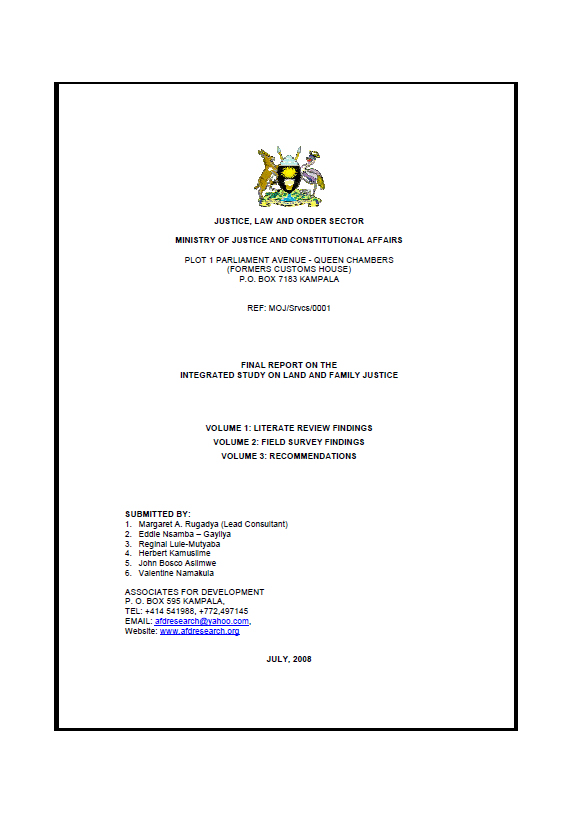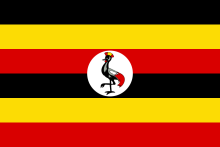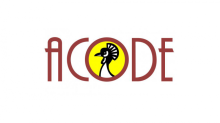Resource information
Land is a natural resource that is limited and finite but with immense commercial (as an asset and factor of production), social-cultural, spiritual and aesthetic value. On the other hand, a family particularly in the context of Uganda is a fluid social construct deriving its strict definition from a particular social-cultural context. Land and family conflicts have been shown by various studies 1 to be the most prevalent form of livelihoods disruption to many households’ and individuals. The Justice Law and Order Sector (JLOS) has adopted a holistic approach to the administration of justice, ensuring actions that translate into improved institutional service delivery, human rights observance, enhanced access to justice for all and poverty reduction in all areas in Uganda including the conflict affected regions, this implies recognition that peoples’ needs and aspirations of the justice system are closely intertwined with their livelihood opportunities. The (JLOS) Strategic Investment Plan (SIP II) aims at enabling all people in Uganda to live in a safe and just society has extended its priority focus to two additional areas of Land and Family Justice in addition to Commercial and Criminal Justice.



